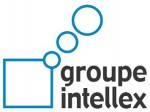Buying a ticket from that machine at the rail station can be a very frustrating experience.
No problem, perhaps, when the ticket office is open or the train guard understands the system’s weaknesses but otherwise desperately annoying. Ordering tickets online for collection at the same machine is not always possible and incurs a booking fee.
At root – and the great challenge for software designers – is the huge complexity of UK ticket and train options. So complex in fact that demands for a grand review of ticket pricing are now battering at the doors of choice options masquerading as competition. On this cold wet morning I just want to get on the train and not debate faux market theory.
If, on this damp morning, one is feeling charitable – and that is unlikely as the train approaches and one is stillsans billet – you might pause to marvel how the user interface designers have made the transaction simple enough for ‘popular’ journeys. My problem occurs because London Waterloo is not, apparently, a popular journey – and I want to travel off-peak and with the benefit of a Senior Railcard.
So, while my feet dry (see below), this journey is now spent pondering alternative designs. At first sight the long screen-tapping trail seems logical. Choose destination. Choose ticket type. Choose quantity. Discover cost and then pay.
Some of that could be simplified for my irregular but frequently repeated journeys. The system could, perhaps, be prompted, say, by my railcard or credit card to remember my usual journey choice. But that would demand an initial touch-screen option – ‘use regular choice?’ – and probably confuse all but the casual commuter.
Another alternative might be to take an entirely different design approach. If you are setting off on a well-worn route it’s highly likely that you have a fair idea of the cost. Why not start by choosing how much you expect to pay and then select from options around that target? I’m sure there are several places I could reach for around £27 but they could be listed by proximity to cost and distance.
So the touch screen options would now be: Likely cost? Single/Return? Railcard Type? Choose destination. Finish/Pay. Remember me?
‘How much do you want to pay?’ That may seem a strange question but, in the arcane world of ticketing machine design, it’s not entirely new.
Travelling from Tokyo to Yokohama 14 years ago I encountered a machine (before the touch screen era) where travellers started their transactions by inserting cash – prompting all available station buttons for that amount to glow. It was memorable because I had just used an airport cash machine that issued high denomination notes. One of those notes produced more destination choices than I thought possible. After selecting Yokohama – WOW – a massive cascade of small change as if I’d hit the jackpot on a fruit machine. With pockets packed with yen-pennies I spent the journey contemplating the cultural divide.
Now, as I’m getting near Waterloo, I can at least take comfort that these words will make another story. Who knows if some software designer may be reading this on a train as he commutes towards his destiny with a ticket machine?
But I’m not alone. Many passengers, standing puzzled before that errant robot, have clearly made a deep impression. Maybe it’s best if I go and get some tarmac to fill in that annoying rain puddle right in front of the darn machine.
_______








